-
 Bitcoin
Bitcoin $118400
0.47% -
 Ethereum
Ethereum $3836
2.20% -
 XRP
XRP $3.157
2.98% -
 Tether USDt
Tether USDt $0.9999
-0.03% -
 BNB
BNB $801.5
1.31% -
 Solana
Solana $180.9
2.07% -
 USDC
USDC $0.9999
-0.02% -
 Dogecoin
Dogecoin $0.2225
2.50% -
 TRON
TRON $0.3285
-1.02% -
 Cardano
Cardano $0.7789
2.60% -
 Hyperliquid
Hyperliquid $43.60
2.39% -
 Sui
Sui $3.892
4.41% -
 Stellar
Stellar $0.4229
3.34% -
 Chainlink
Chainlink $18.01
3.98% -
 Hedera
Hedera $0.2745
6.77% -
 Bitcoin Cash
Bitcoin Cash $582.3
3.38% -
 Avalanche
Avalanche $23.77
1.04% -
 Ethena USDe
Ethena USDe $1.001
0.01% -
 Toncoin
Toncoin $3.493
3.59% -
 Litecoin
Litecoin $110.0
2.48% -
 UNUS SED LEO
UNUS SED LEO $8.936
-0.37% -
 Shiba Inu
Shiba Inu $0.00001304
2.49% -
 Uniswap
Uniswap $9.999
1.09% -
 Polkadot
Polkadot $3.897
3.26% -
 Monero
Monero $308.6
-0.83% -
 Dai
Dai $0.9999
-0.01% -
 Bitget Token
Bitget Token $4.504
-0.04% -
 Pepe
Pepe $0.00001154
2.95% -
 Cronos
Cronos $0.1471
3.06% -
 Ethena
Ethena $0.6691
19.53%
How to buy the monthly MACD underwater secondary golden cross + weekly line Yang Bao Yin + daily line breaking through the 60-day line?
The MACD underwater secondary golden cross, weekly Yang Bao Yin, and daily breakout above the 60-day SMA together signal a high-probability bullish reversal in crypto.
Jul 30, 2025 at 12:22 am
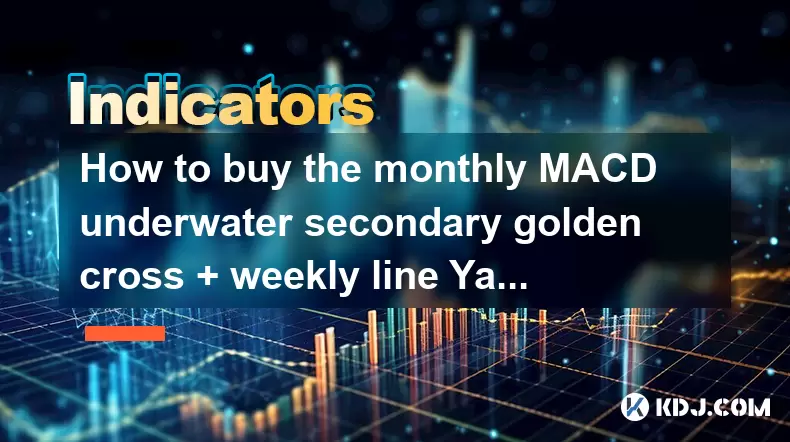
Understanding the MACD Underwater Secondary Golden Cross
The MACD underwater secondary golden cross is a technical signal used by traders to identify potential bullish reversals in a downtrend. The term "underwater" refers to the situation where the price is trading below a major moving average, typically the 200-day moving average. A "golden cross" occurs when the MACD line (the faster line) crosses above the signal line (the slower line), indicating momentum shift. A "secondary" golden cross means this crossover happens after a prior failed attempt, suggesting renewed bullish momentum despite a bearish environment.
To identify this pattern:
- Open a charting platform such as TradingView or MetaTrader.
- Apply the MACD indicator (default settings: 12, 26, 9).
- Confirm the price is below the 200-day moving average.
- Look for the first golden cross that failed to sustain upward movement.
- Wait for a retracement, followed by a second crossover of the MACD line above the signal line.
- Ensure volume increases during the second crossover to confirm strength.
This signal is considered rare but powerful in cryptocurrency markets due to their volatility. It suggests that selling pressure is weakening and buyers are regaining control after a prolonged decline.
Interpreting the Weekly Line Yang Bao Yin Pattern
The weekly line Yang Bao Yin is a candlestick pattern originating from Japanese technical analysis. "Yang" refers to a bullish (white or green) candle, and "Yin" refers to a bearish (black or red) candle. "Bao" means "to wrap" or "engulf." Therefore, Yang Bao Yin describes a weekly bullish engulfing pattern where the current week’s green candle completely engulfs the body of the previous week’s red candle.
To detect this:
- Switch your chart to the weekly timeframe.
- Identify a red (bearish) candle from the prior week.
- Observe the current week's candle forming a higher close and lower open than the prior week’s candle body.
- The full body of the new candle must cover the entire body of the previous candle.
- Ideally, the volume should be higher than average during the engulfing week.
This pattern signals a strong shift in sentiment. In cryptocurrency markets, where sentiment drives price action, a weekly Yang Bao Yin can indicate institutional or large-cap accumulation. It is especially significant when it occurs after a prolonged downtrend and aligns with other bullish indicators.
Confirming the Daily Break Above the 60-Day Moving Average
The daily line breaking through the 60-day moving average is a key momentum confirmation. The 60-day moving average acts as a mid-to-long-term trend filter. A breakout above it suggests that short-term momentum is overcoming medium-term resistance.
To verify this:
- Set your chart to the daily timeframe.
- Add the 60-day simple moving average (SMA) to your chart.
- Watch for the closing price to move above the 60-day SMA.
- Confirm the breakout with at least two consecutive green candles above the line.
- Check that trading volume is elevated on the breakout day.
It is crucial to avoid false breakouts. A false breakout occurs when price briefly moves above the 60-day SMA but closes back below it. To reduce risk:
- Wait for the candle to close definitively above the SMA.
- Use a buffer zone, such as 1% above the moving average, to confirm strength.
- Combine with RSI (Relative Strength Index) to ensure it’s not overbought (e.g., RSI < 70).
This breakout often coincides with increased buying from algorithmic traders and ETFs, especially in major cryptocurrencies like Bitcoin or Ethereum.
Combining All Three Conditions for Entry
To execute a trade based on the confluence of these three signals:
- Ensure all three conditions are met simultaneously or within a close time window.
- Start by filtering cryptocurrencies using a scanner on TradingView with custom scripts.
- Manually verify each condition on the weekly, daily, and MACD charts.
When all criteria align:
- MACD underwater secondary golden cross confirms momentum revival.
- Weekly Yang Bao Yin confirms structural bullish reversal.
- Daily breakout above 60-day SMA confirms short-term trend shift.
Entry strategy:
- Place a limit order slightly above the daily breakout candle’s high to avoid missing the move.
- Set a stop-loss below the recent swing low or below the 60-day SMA.
- Use position sizing based on volatility (e.g., ATR-based stops).
- Consider scaling in if the price retests the 60-day SMA as support.
This multi-timeframe confirmation reduces false signals and increases the probability of a sustained upward move.
Step-by-Step Execution on a Crypto Exchange
To buy a cryptocurrency meeting these criteria:
- Choose a reliable exchange such as Binance, Coinbase Pro, or Kraken.
- Log in and navigate to the spot trading section.
- Use the search bar to find the asset that meets the technical conditions.
- Open the advanced chart and verify all three signals again.
- Click on the buy order section.
- Select limit order type.
- Enter the desired quantity based on your risk tolerance.
- Set the price slightly above the current market price to ensure execution.
- Enable post-only if available to avoid taker fees.
- Review the order and confirm.
After placing the order:
- Monitor the order status in the open orders tab.
- Once filled, check the order history for confirmation.
- Immediately set a stop-loss order in the futures or spot grid if supported.
- For long-term holds, transfer the asset to a cold wallet after purchase.
Ensure two-factor authentication (2FA) is enabled and avoid using public Wi-Fi during trading.
Frequently Asked Questions
What if the MACD golden cross occurs above the 200-day MA?
If the crossover happens above the 200-day moving average, it is not considered "underwater." The underwater condition specifically requires the price to be below the 200-day MA. This distinction is critical because it reflects a recovery from a bear market rather than continuation in a bull market.
Can the Yang Bao Yin pattern form over multiple weeks?
No. The Yang Bao Yin must occur within two consecutive weekly candles. The current week’s candle must fully engulf the prior week’s body. A pattern spanning more than two weeks does not qualify under this definition.
Is the 60-day moving average the same as the 12-week MA?
Yes, the 60-day moving average approximates the 12-week moving average, assuming 5 trading days per week. However, due to weekend trading in crypto, the values may slightly differ depending on the platform’s calculation method.
What time should I check for weekly candle closure?
Weekly candles on most platforms close at 00:00 UTC on Monday. To confirm the Yang Bao Yin, wait until the weekly candle has fully closed. Acting before closure risks misreading the pattern if the candle wicks back down.
Disclaimer:info@kdj.com
The information provided is not trading advice. kdj.com does not assume any responsibility for any investments made based on the information provided in this article. Cryptocurrencies are highly volatile and it is highly recommended that you invest with caution after thorough research!
If you believe that the content used on this website infringes your copyright, please contact us immediately (info@kdj.com) and we will delete it promptly.
- Bitcoin, Corporate Investments, and Sustainability: A New Era or Fleeting Fad?
- 2025-07-31 20:50:14
- Ethereum vs. Bitcoin: Analyst Compares ETH to '90s Tech Stocks as ETF Inflows Soar
- 2025-07-31 20:30:31
- Cryptos, Bitcoin, Reclaim: Navigating the Wild West of Digital Assets
- 2025-07-31 20:30:31
- Pudgy Penguins Price Prediction: Buying Opportunity or Insider Dump?
- 2025-07-31 18:50:35
- Penny Coin Power: Unearthing 20x Potential in Undervalued Crypto
- 2025-07-31 20:10:14
- Shrapnel, GalaChain, and China Gaming: A New Frontier
- 2025-07-31 19:10:35
Related knowledge
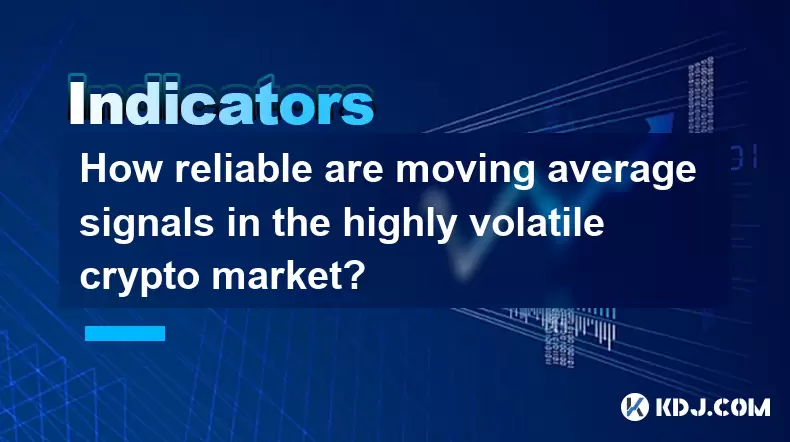
How reliable are moving average signals in the highly volatile crypto market?
Jul 31,2025 at 08:36pm
Understanding Moving Averages in Cryptocurrency TradingMoving averages (MAs) are among the most widely used technical indicators in the cryptocurrency...
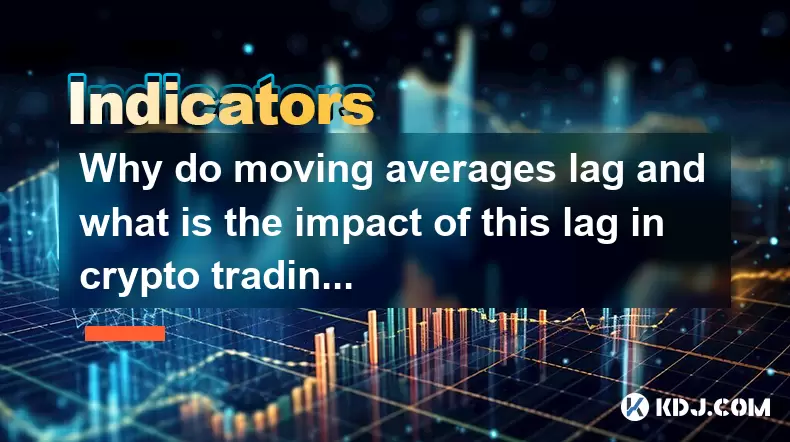
Why do moving averages lag and what is the impact of this lag in crypto trading?
Jul 31,2025 at 08:07pm
Understanding the Concept of Moving Averages in Crypto TradingMoving averages are among the most widely used technical indicators in cryptocurrency tr...
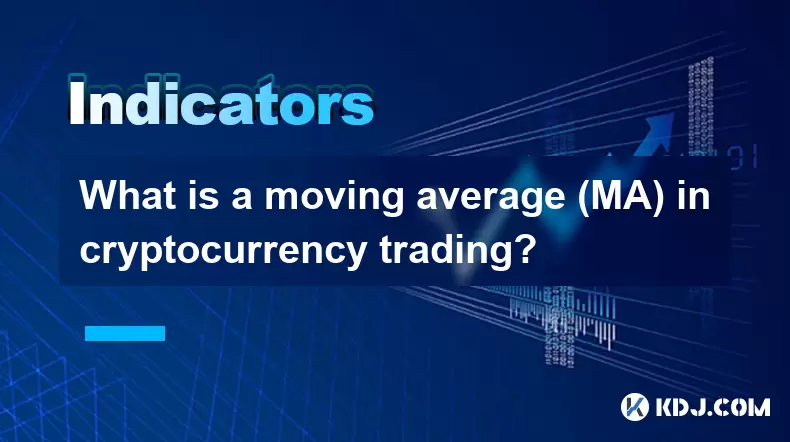
What is a moving average (MA) in cryptocurrency trading?
Jul 31,2025 at 06:30pm
Understanding the Concept of Moving Average (MA)A moving average (MA) is a widely used technical analysis tool in cryptocurrency trading that helps sm...
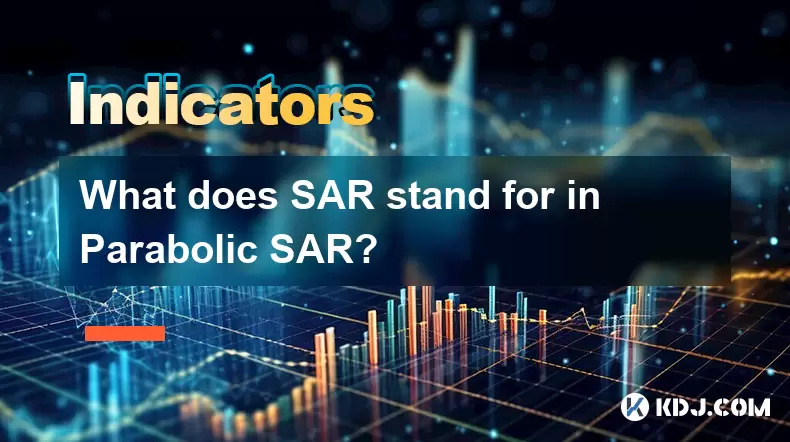
What does SAR stand for in Parabolic SAR?
Jul 31,2025 at 06:49pm
Understanding the Meaning of SAR in Parabolic SARIn the context of technical analysis in the cryptocurrency market, SAR stands for 'Stop and Reverse' ...
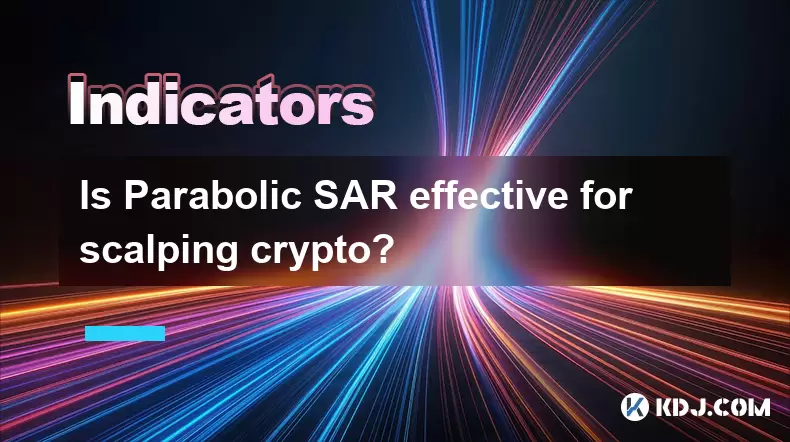
Is Parabolic SAR effective for scalping crypto?
Jul 31,2025 at 08:29pm
Understanding Parabolic SAR in Cryptocurrency TradingThe Parabolic SAR (Stop and Reverse) is a technical indicator developed by J. Welles Wilder, prim...
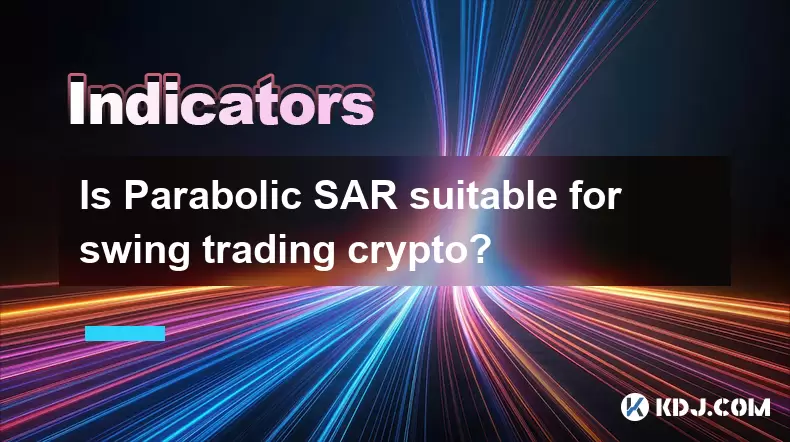
Is Parabolic SAR suitable for swing trading crypto?
Jul 31,2025 at 05:29pm
Understanding Parabolic SAR in Cryptocurrency TradingThe Parabolic SAR (Stop and Reverse) is a technical indicator developed by J. Welles Wilder that ...

How reliable are moving average signals in the highly volatile crypto market?
Jul 31,2025 at 08:36pm
Understanding Moving Averages in Cryptocurrency TradingMoving averages (MAs) are among the most widely used technical indicators in the cryptocurrency...

Why do moving averages lag and what is the impact of this lag in crypto trading?
Jul 31,2025 at 08:07pm
Understanding the Concept of Moving Averages in Crypto TradingMoving averages are among the most widely used technical indicators in cryptocurrency tr...

What is a moving average (MA) in cryptocurrency trading?
Jul 31,2025 at 06:30pm
Understanding the Concept of Moving Average (MA)A moving average (MA) is a widely used technical analysis tool in cryptocurrency trading that helps sm...

What does SAR stand for in Parabolic SAR?
Jul 31,2025 at 06:49pm
Understanding the Meaning of SAR in Parabolic SARIn the context of technical analysis in the cryptocurrency market, SAR stands for 'Stop and Reverse' ...

Is Parabolic SAR effective for scalping crypto?
Jul 31,2025 at 08:29pm
Understanding Parabolic SAR in Cryptocurrency TradingThe Parabolic SAR (Stop and Reverse) is a technical indicator developed by J. Welles Wilder, prim...

Is Parabolic SAR suitable for swing trading crypto?
Jul 31,2025 at 05:29pm
Understanding Parabolic SAR in Cryptocurrency TradingThe Parabolic SAR (Stop and Reverse) is a technical indicator developed by J. Welles Wilder that ...
See all articles

























































































